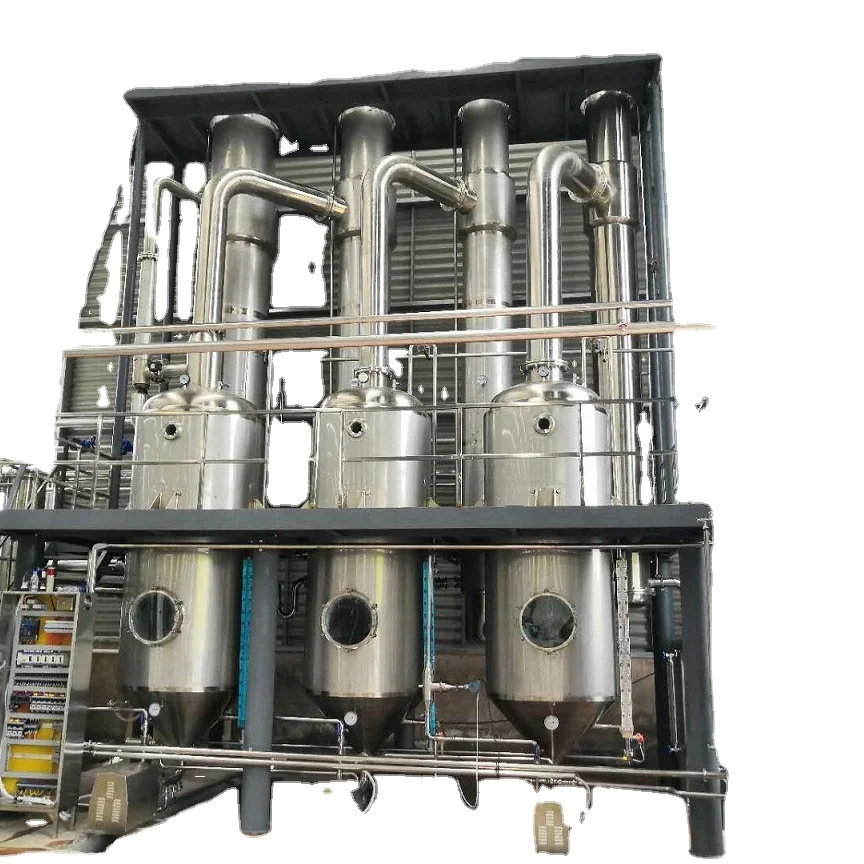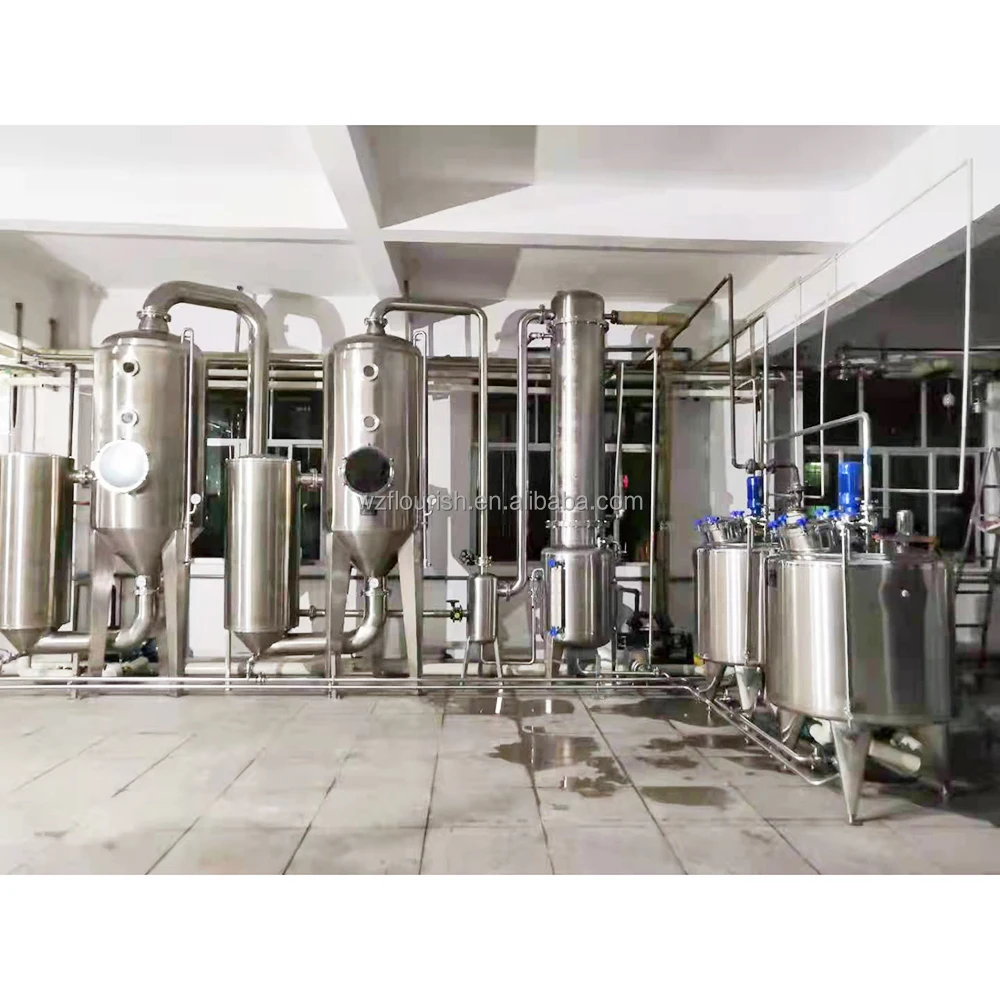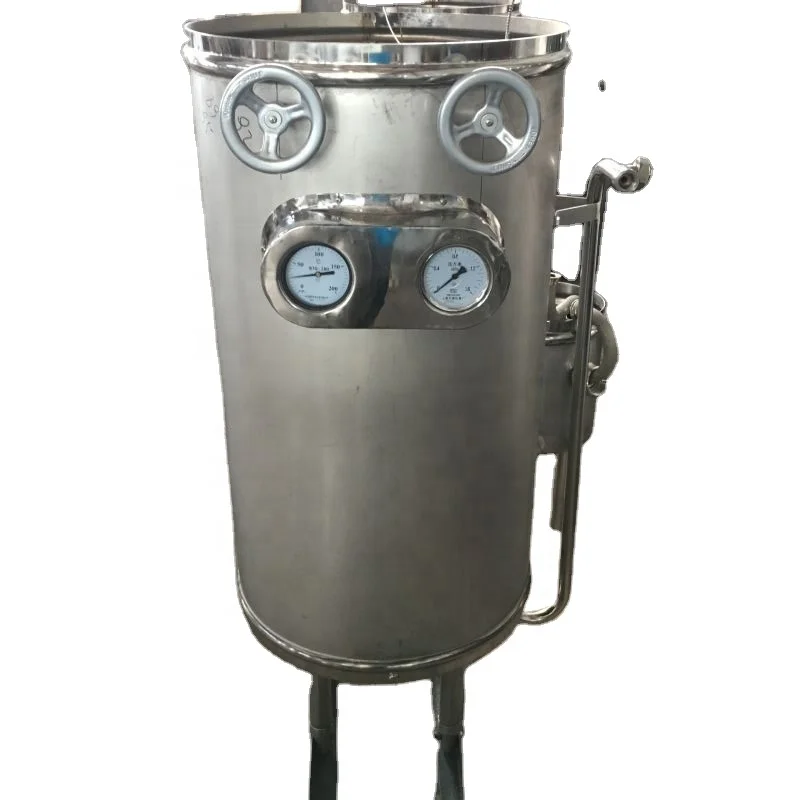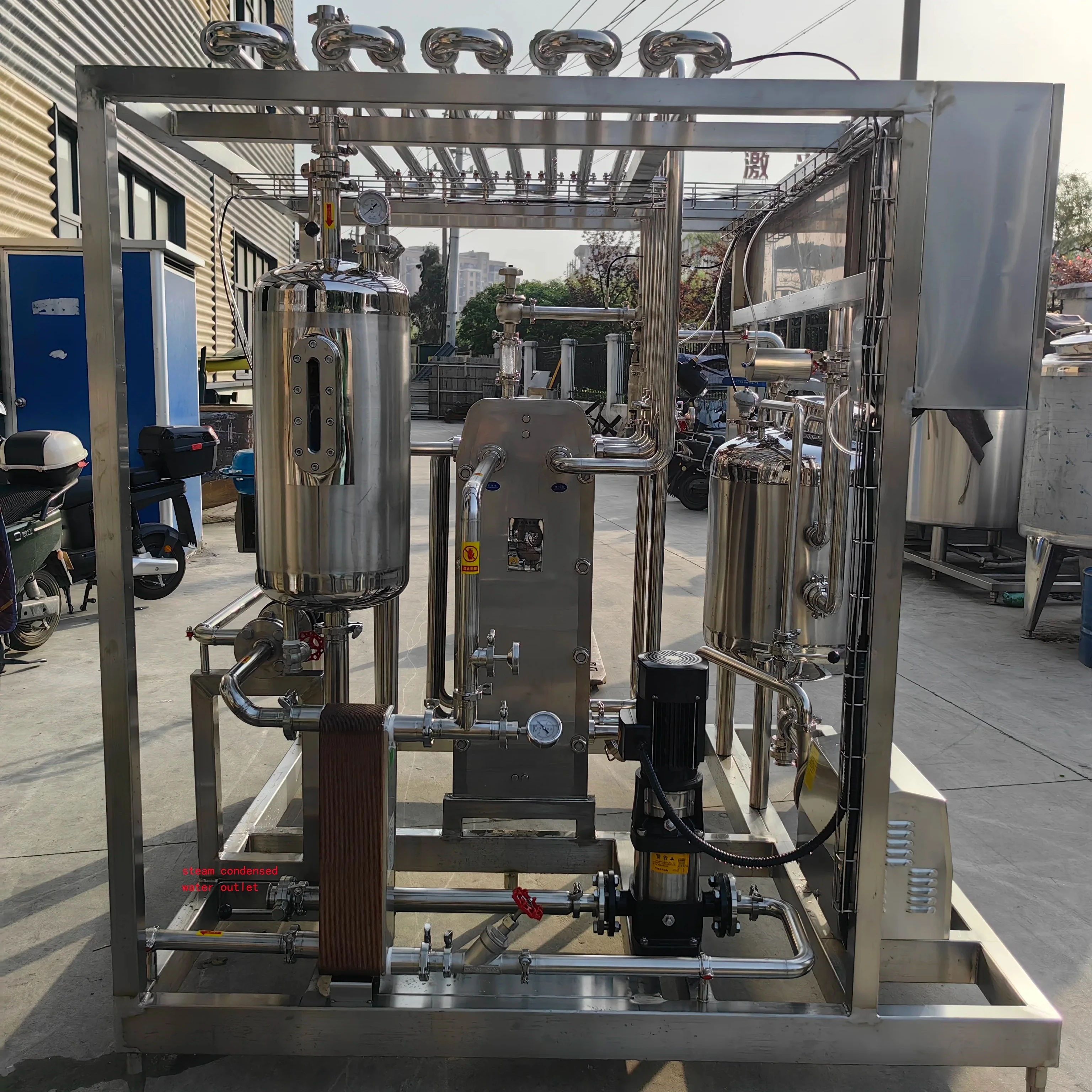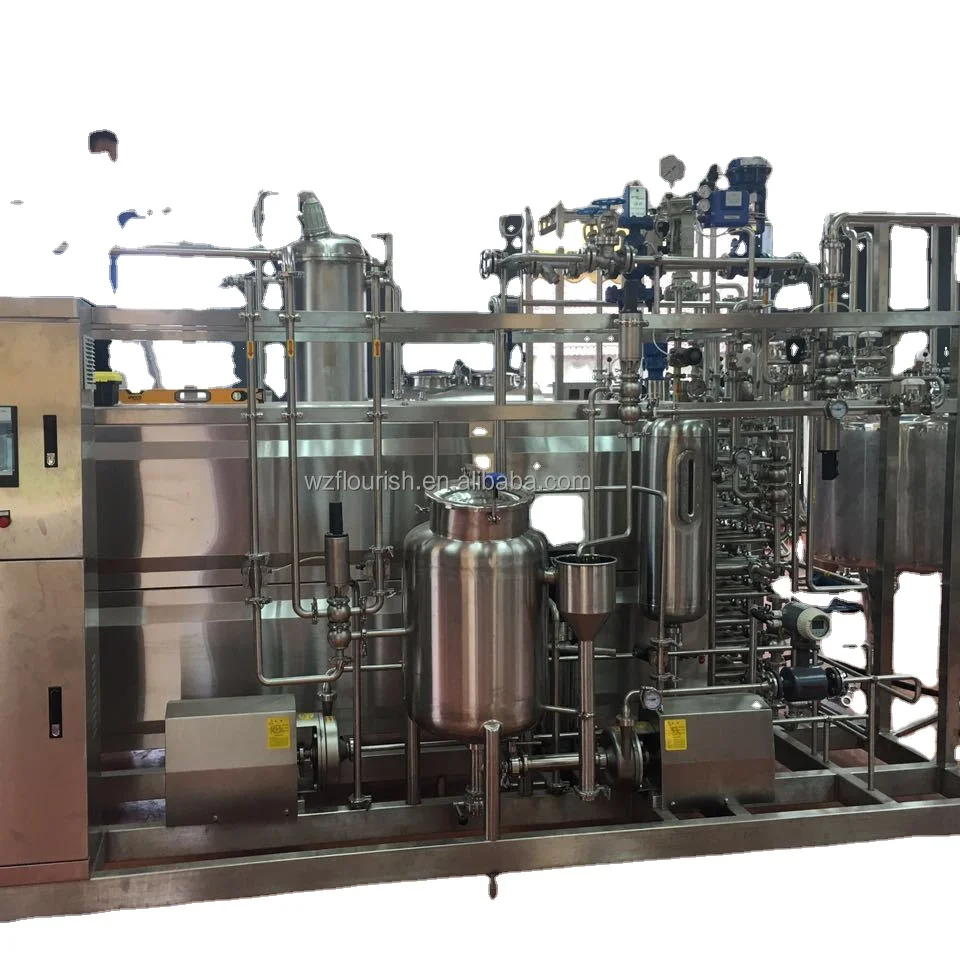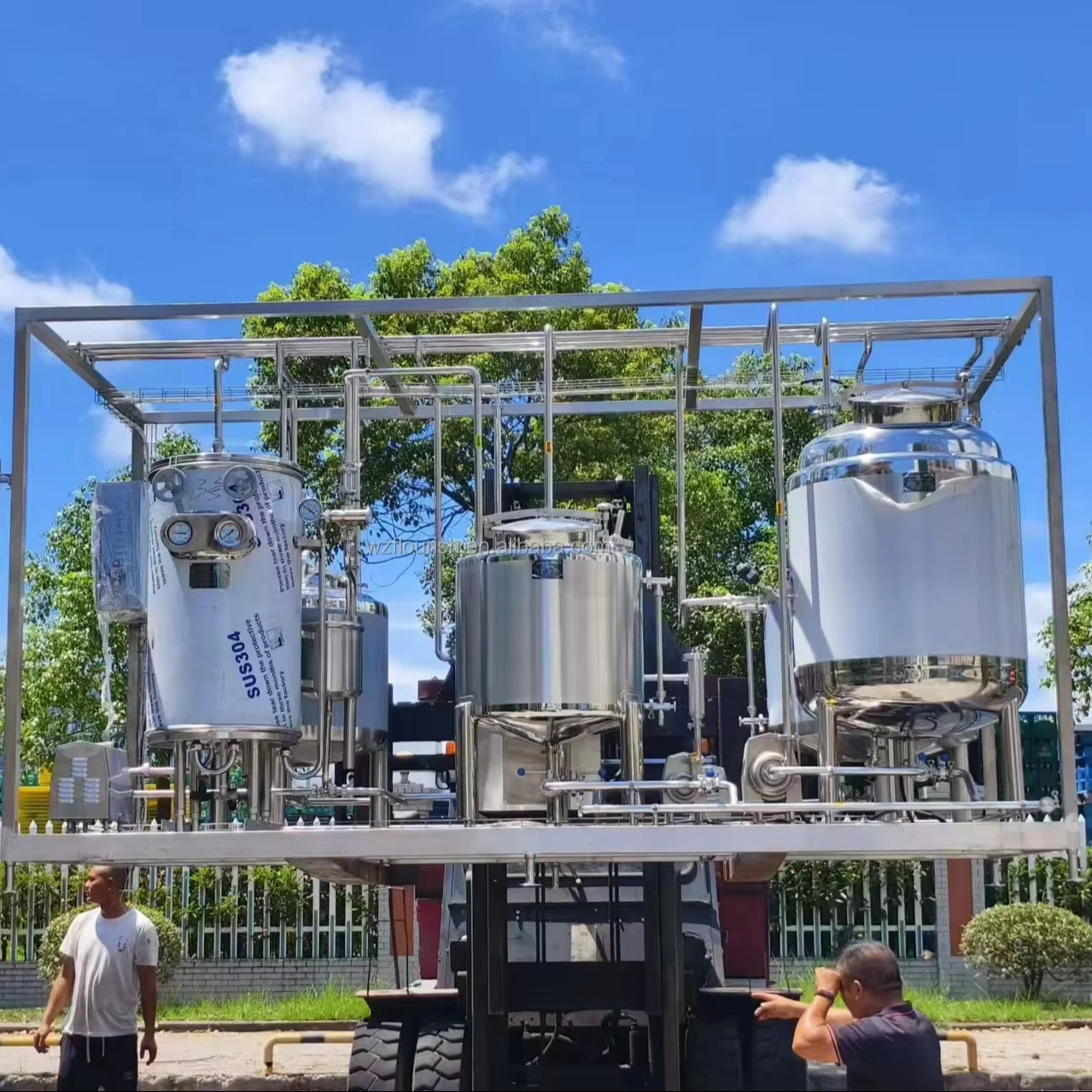ABOUT
Wenzhou Vince Machinery Science Co., Ltd. was established in early 1980s. Our company covers an area of 6500 square meters and is an independent legal representative firm, possessing rich economic technology strength. Our company is a high tech enterprise and plays an important role in national dairy, foodstuff, pharmacy and machinery industries. We are a beverage machinery supplier.
Since the establishment, our company has mainly engaged in dairy products, foodstuff, beverage machinery, bean products, yellow wine, medicines and fermentation projects. What's more, our company supplies a complete sequence services in manufacturing, installation, test and personnel train, as well as the whole direction service design and consulting service on product project construction or enlargement artistic distribution engineering sets budget.
PRODUCTS
Advanced Heating Tank Technology Explained Simply
Enhanced Insulation and Reduced Heat Loss
One of the most significant improvements in modern heating tanks is significantly enhanced insulation. Older models suffered from considerable heat loss through their walls, leading to constant reheating and increased energy consumption. Advanced tanks utilize thicker layers of high-performance insulation materials, such as polyurethane foam or vacuum insulation panels (VIPs). These materials drastically minimize heat transfer to the surrounding environment, resulting in less energy needed to maintain the desired water temperature. This translates directly into lower energy bills and a smaller environmental impact.
Furthermore, innovative tank designs minimize thermal bridging—points where heat can escape more easily—through careful material selection and construction techniques. This meticulous attention to detail ensures that the tank retains heat far more effectively than its predecessors, leading to significant operational cost savings over the lifespan of the appliance.
Smart Technology and Energy-Saving Features
Many advanced heating tanks now incorporate smart technology features to optimize performance and energy efficiency. These "smart" tanks can learn your hot water usage patterns and adjust heating cycles accordingly, preventing unnecessary energy consumption. Some even offer remote monitoring and control through smartphone apps, allowing you to check water temperature, adjust settings, and receive alerts about potential issues—all from the convenience of your mobile device.
Beyond smart controls, many advanced models integrate features like demand-based heating. This means the tank only heats water when it's needed, further optimizing energy use and minimizing standby losses. This contrasts sharply with traditional systems that continuously heat the water, even when not in use.
Improved Durability and Longevity
The lifespan of a traditional water heater is often limited by corrosion and scaling. Advanced tank technology combats this through the use of corrosion-resistant materials such as high-quality stainless steel or glass-lined tanks. These materials are far more resistant to the corrosive effects of water, significantly extending the tank's lifespan and reducing the frequency of replacements. This longevity not only saves money in the long run but also minimizes waste associated with discarding old appliances.
Additionally, advancements in anode rod technology further protect against corrosion. Improved anode rod designs and materials provide superior protection against mineral buildup and degradation, maximizing the tank's overall durability and resilience.
Eco-Friendly Materials and Reduced Environmental Impact
Modern heating tank manufacturers are increasingly focusing on environmentally friendly materials and manufacturing processes. This includes using recycled materials in construction, reducing energy consumption during manufacturing, and designing tanks for easier recycling at the end of their life cycle. Furthermore, the increased energy efficiency of these tanks directly translates to a lower carbon footprint compared to their older counterparts.
Many manufacturers also offer tanks that are compatible with renewable energy sources, such as solar thermal systems. Integrating these advanced heating tanks with renewable energy options further minimizes reliance on fossil fuels and reduces the overall environmental impact of home hot water heating.
In conclusion, advanced heating tank technology offers a compelling solution for homeowners seeking both energy efficiency and environmental sustainability. The innovations discussed above—from enhanced insulation and smart technology to improved durability and eco-friendly materials—are transforming the way we heat water, paving the way for a more comfortable, cost-effective, and environmentally responsible future.SUBSCRIBE
INQUIRY

